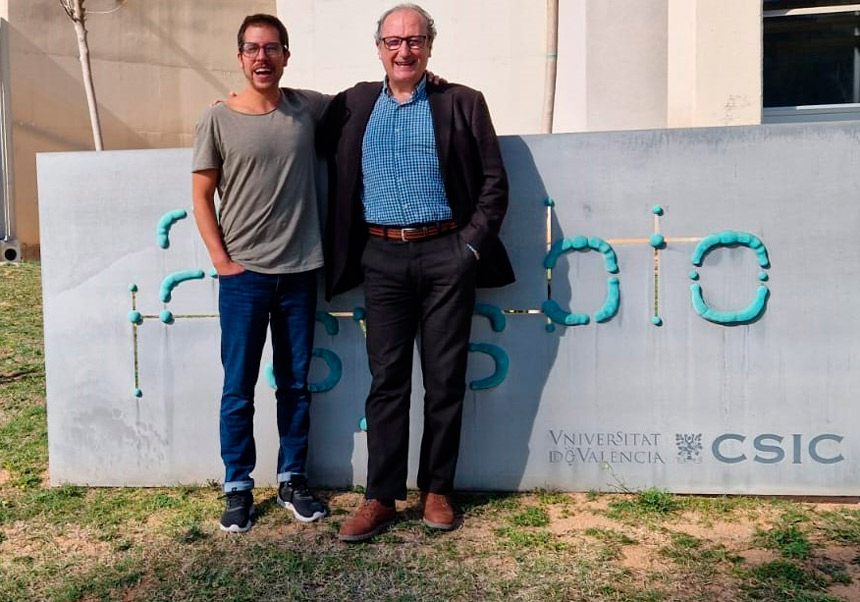
This thesis, supervised by Andrés Moya, builds a bridge between life sciences and the history and philosophy of biology, bringing into focus the primary achievements made by historians and philosophers over the past generation and how these advancements can modernize biological thought. The thesis was defended on 13 March 2023.
The first major synthesis of biology—i.e., the Modern Synthesis (1918-1956)—united the subdisciplines of biology and organized them into a coherent theoretical and mathematical framework of evolution, leading to the legitimization of biology as a scientific discipline and natural selection as a reputable scientific theory. Yet while ecology played a major role in the eventual acceptance of the population genetic viewpoint of evolution in the synthetic era, it held a lesser role in the development of evolutionary theory until the 1980s, when we began to systematically study the evolutionary dynamics of natural populations in space and time. As a result, evolutionary theory was initially constructed in an abstract vacuum that was unrepresentative of evolution in nature. Unifying ecology with evolutionary biology has thus progressed our knowledge of natural selection theory. We are no longer asking if natural selection is operating in natural populations but how natural selection causes adaptation in natural populations over spatiotemporal contexts. Evolutionary biology is currently suspended at an intermediate stage of scientific progress that calls for the organization and integration of overflowing knowledge stockpiles—produced by its recent synthesis with ecology—into a coherent and unified theoretical framework, just like that seen in the first synthesis. This is where recent advancements in the philosophy of biology can be of great use, acting as a bridge between previously divided subdisciplines of biology and inventing new theoretical strategies to organize and accommodate divided knowledge.
This thesis, entitled “Evolution in Space and Time. The Second Synthesis between Ecology, Evolutionary Biology, and the Philosophy of Biology” offers an historical reconstruction of the philosophical, technological, and natural forces that led to the Second Synthesis, in hopes of recognizing the significant advancements that have overtaken biology in the past generation. The author then offers some normative recommendations, prescribing a pluralistic theory of natural selection that can explain complex emergent phenomena (like evolvability) to finally resolve the paradox of adaptive variation. The thesis builds a bridge between greater biology and the history/philosophy of biology, bringing into focus the primary achievements made by historians and philosophers over the past generation and how these advancements can modernize biological thought. The first synthesis legitimized biology; the Second Synthesis autonomized biology. Now it is once again time to organize and structure our new knowledge into a coherent theoretical framework, using the theoretical strategies suggested by philosophers to represent a new way of looking at the evolution of life on earth—and likely beyond.
Mitchell Ryan Distin carried out his doctoral research in the Evolutionary Genetics group under the supervision of Andrés Moya, full professor of Genetics at the Universitat de València and researcher at the Institute of Integrative Systems Biology I2SysBio (UV-CSIC). During the development of the research Mitchell Ryan Distin made a stay at the Department of History and Philosophy of Science, Cambridge University. The qualifying committee was formed by Víctor Luque (Universitat de València), Laura Nuño de la Rosa (Universidad Complutense), and Ana Barahona (Universidad Nacional Autónoma de México), who graded the thesis as outstanding.











